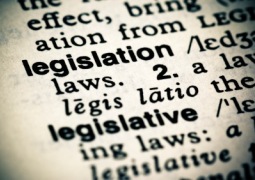
The Select Committee on Trade and Industry, Small Business Development, Economic Development, Tourism, Employment and Labour resumed its public hearings into the Copyright Amendment Bill and the Performers’ Protection Bill.
Various industry bodies, including the Publishers Association of South Africa (PASA), the Motion Pictures Association and the South African Guild of Actors, presented their views on the bills this morning. Other presenters included Prof Sadulla Karjiker (Stellenbosch University) and the Congress of South African Trade Unions (COSATU).
Most presenters took issue with the 25-year limit to copyright ownership proposed in the legislation, saying it will deny many artists their earnings. Mr Brain Wafawarowa of PASA said authors will be unwilling to work on new editions of their work, if piracy were to be allowed after the 25-year limit to copyright expired.
“This is a difficult topic, there are a lot of good things in the industry and a few malpractices. This bill will have a terrible impact in the sector. After 25 years, schools will be allowed to just copy the books. Authors are unwilling to work on new editions if their work will be pirated like that,” Mr Wafawarowa said.
Mr Wafawarowa said the proposal will deny authors remuneration for their work and instead prioritised students. He said 25 years is too short a period of time, as books sometimes take a while before they start generating revenue.
Prof Karjiker, who is the chair of intellectual property law at Stellenbosch University, likened the tabling of the bills to dealing with another chapter in the saga of a failed state. “It is difficult to be restrained and complimentary about the bills. It has resulted in waste of resources, to fix something that should not be before the committee.” He said the bills were flawed procedurally and fundamentally, and called for the return to accountability in legislation making.
Prof Karjiker queried the origins and the need for the bills and why they were introduced by the Portfolio Committee on Trade and Industry (DTI) in 2017. “This public hearings process is merely an exercise to create an impression of public participation. DTI did not handle this in a credible manner,” he said.
The Chairperson of the committee, Mr Kenny Mmoiemang, said the intellectual property space continually evolves. He asked how the challenges with the bills raised by industry stakeholders could be resolved, especially as they relate to the marginalisation of smaller stakeholders. Meanwhile, COSATU supported the bills, saying they will change the lives of poor actors.
Sibongile Maputi
7 March 2023

